Meeting of Superintendents
Attended by two ex-presidents of Funai, event calls attention to coverage of indigenous territories in the 2022 Census
February 09, 2023 02h00 PM | Last Updated: February 15, 2023 06h30 PM

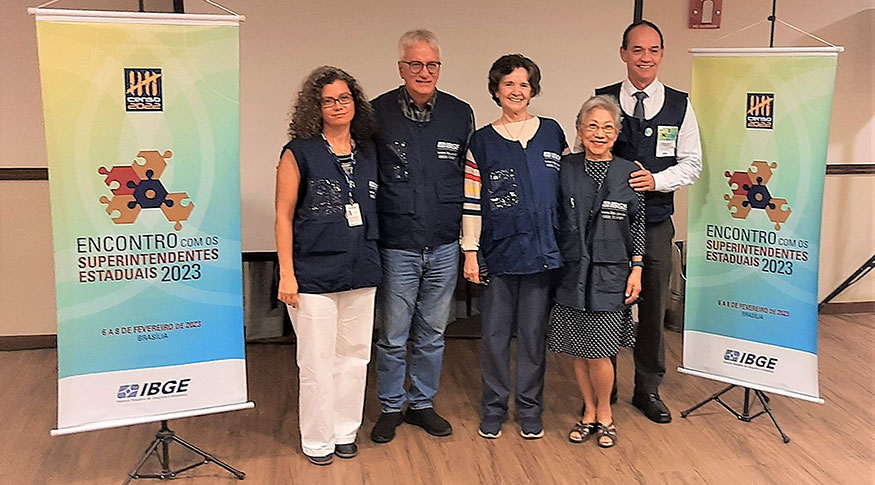
One of the greatest challenges of the entire census operation taken to the field by the IBGE in August last year, the enumeration of Traditional Peoples and Communities was the highlight in the first Meeting of IBGE State Superintendents in 2023, which ended this Wednesday (Feb 08) in Brasília. Both the indigenist Artur Nobre Mendes (Funai president between July 2002 and February 2003) and the anthropologist and demographer Marta Azevedo (member of the Census Consultative Commission in charge of Indigenous and Quilombola Peoples, and who also presided Funai from April 2012 to June 2013) insisted on acknowledging the coverage and quality of the IBGE work in Indigenous Territories.
“Real numbers and data on Indigenous peoples are only available because of the IBGE, and I am very grateful to you who work in the field” said Ms. Azevedo, who has worked for 44 years with Indigenous and since 1990 has directly given support to the Institute’s data collection. “The Indigenous issue is in the world’s agenda, due to the problems with the Yanomamis, which makes the 2022 Census even more relevant”, she added.
Ms. Azevedo claims that only the IBGE is able to make a complete account of the Indigenous population living in Brazil, in terms of health, education, sanitation, land use and other aspects of the daily life in the villages and cities. “Where are Indigenous schools needed? How many vaccines should we distribute in each locality? What is the growth rate of the indigenous population?”, exemplified the expert, explaining that these answers can derive from the Census work.
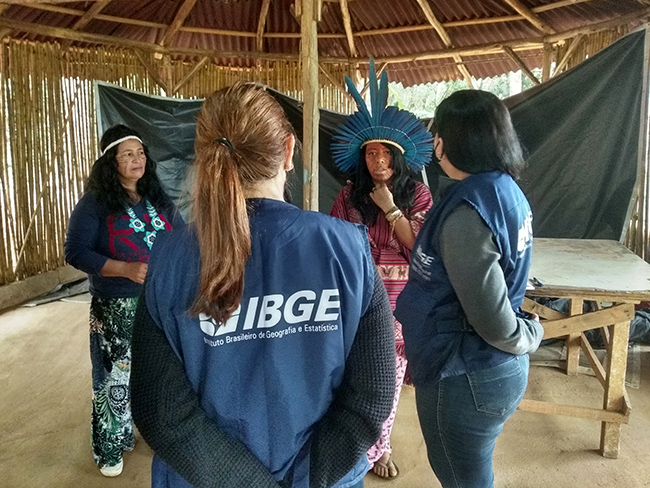
“From now on, more than a portrait, we will have a ‘movie’, as we will be able to compare those data to the ones collected in the 2012 Census”, she said. “Those are important results for public policies, for Indigenous Peoples and for demographic science”, she summarized.
The manager of the technical cooperation agreement between the IBGE and Funai, Artur Nobre Mendes, agrees: “Even before the 2010 Census, the Indigenous populations were invisibilized. It was with the IBGE surveys that we could capture the reality of those people”, he commented. The indigenist highlighted as a Census feature the capacity of overcoming obstacles. “The access to a great part of the localities is seasonal: it depends on the rivers’ flow regime, for instance. But in the context of a Census, with deadlines, those natural barriers must be faced. On foot, by boat, by plane or helicopter: IBGE enumerators gets there and makes the interview, bringing back valuable answers”, he stated.


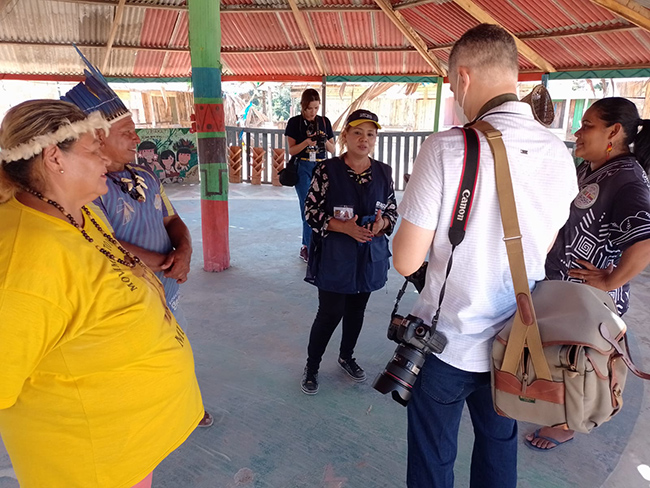
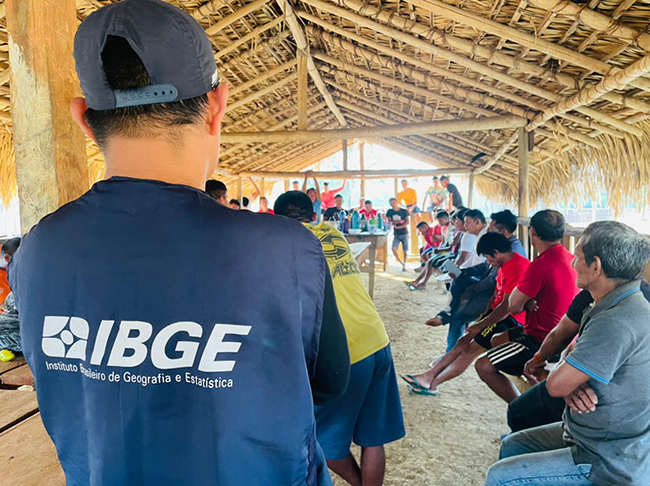 Images of IBGE census operations in indigenous territories - Photo: IBGE Collection
Images of IBGE census operations in indigenous territories - Photo: IBGE Collection Images of IBGE census operations in indigenous territories - Photo: IBGE Collection
Images of IBGE census operations in indigenous territories - Photo: IBGE Collection Images of IBGE census operations in indigenous territories - Photo: IBGE Collection
Images of IBGE census operations in indigenous territories - Photo: IBGE Collection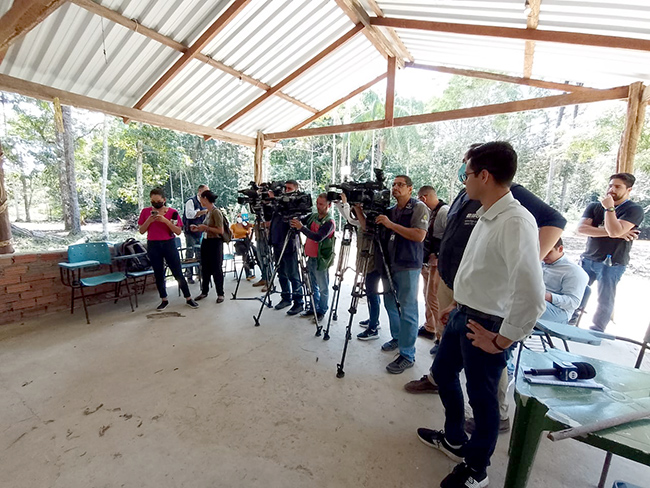 Images of IBGE census operations in indigenous territories - Photo: IBGE Collection
Images of IBGE census operations in indigenous territories - Photo: IBGE Collection Images of IBGE census operations in indigenous territories - Photo: IBGE Collection
Images of IBGE census operations in indigenous territories - Photo: IBGE Collection Images of IBGE census operations in indigenous territories - Photo: IBGE Collection
Images of IBGE census operations in indigenous territories - Photo: IBGE Collection“We have 95% of Indigenous enumeration areas completed", informed Ms. Antunes
The Census Coordinator of Traditional Peoples and Communities of the IBGE, Marta Antunes, and the demographer Diana Reiko Sawyer, member of the 2022 Census Consultative Commission were also present at the round table. Both gave the same emphasis to the coverage and quality of the enumeration of the Traditional Peoples and Communities, and to the challenges successfully faced.
“We have completed 95% of the Indigenous enumeration areas and we have reached a similar number with the Quilombola communities”, said Ms. Antunes, thanking the efforts of all superintendents and Funai’s and Conaq’s (National Coordination of Articulation of Quilombola Rural Black Communities) support in this mission. With a bit of humor, demographer Diana Sawyer anticipates what she expects of the Census’ final phase. “We all know that it is quite impossible to reach 100% coverage with these populations, but I would be satisfied with 99.99%”, she joked.
The debate was mediated by Mr. Cimar Azeredo, IBGE Director of Surveys and Acting President. He also highlighted IBGE’s zeal enumerating the Traditional Peoples and Communities.
“The 2022 Census was conceived to innovate in the questionnaire for the Traditional Peoples and Communities and has planned the operation in detail for those territories, aiming not only at a quality data collection, but also at disseminating the information with accuracy. The IBGE will try and guarantee a timely dissemination, knowing that those are fundamental data which must be delivered as soon as possible. That is why we have always stressed the need for unconditional support from society”, remarked Mr. Azeredo.
The IBGE superintendents were unanimous defending the census operation, convinced that the work will bring high-quality results, very useful for the country. The first IBGE Meeting of State Superintendents in 2023 was held in the federal capital for three days and gathered the 27 head of State Branches and members of the Institute’s Board of Directors in order to approach several aspects of the census operation.
Read more on the event:
Simone Tebet receives IBGE servants in Brasília and highlights trust in the Census
Minister Simone Tebet defends IBGE and invites population to answer the Census


















